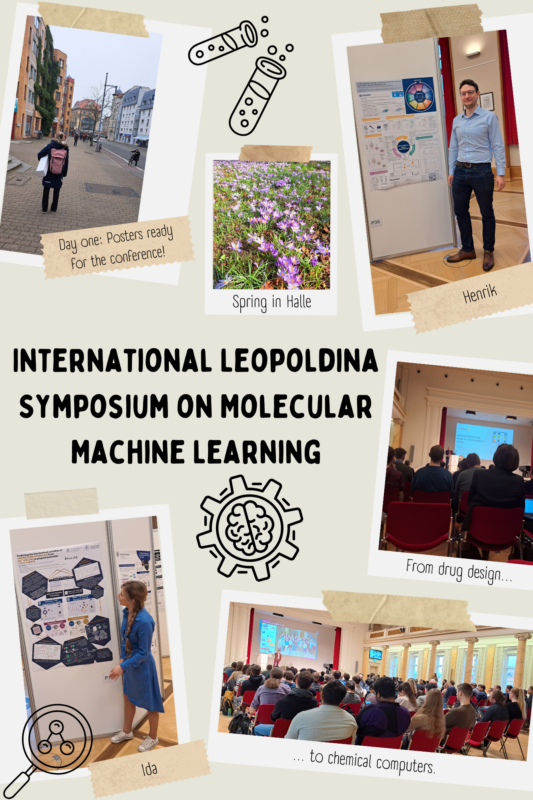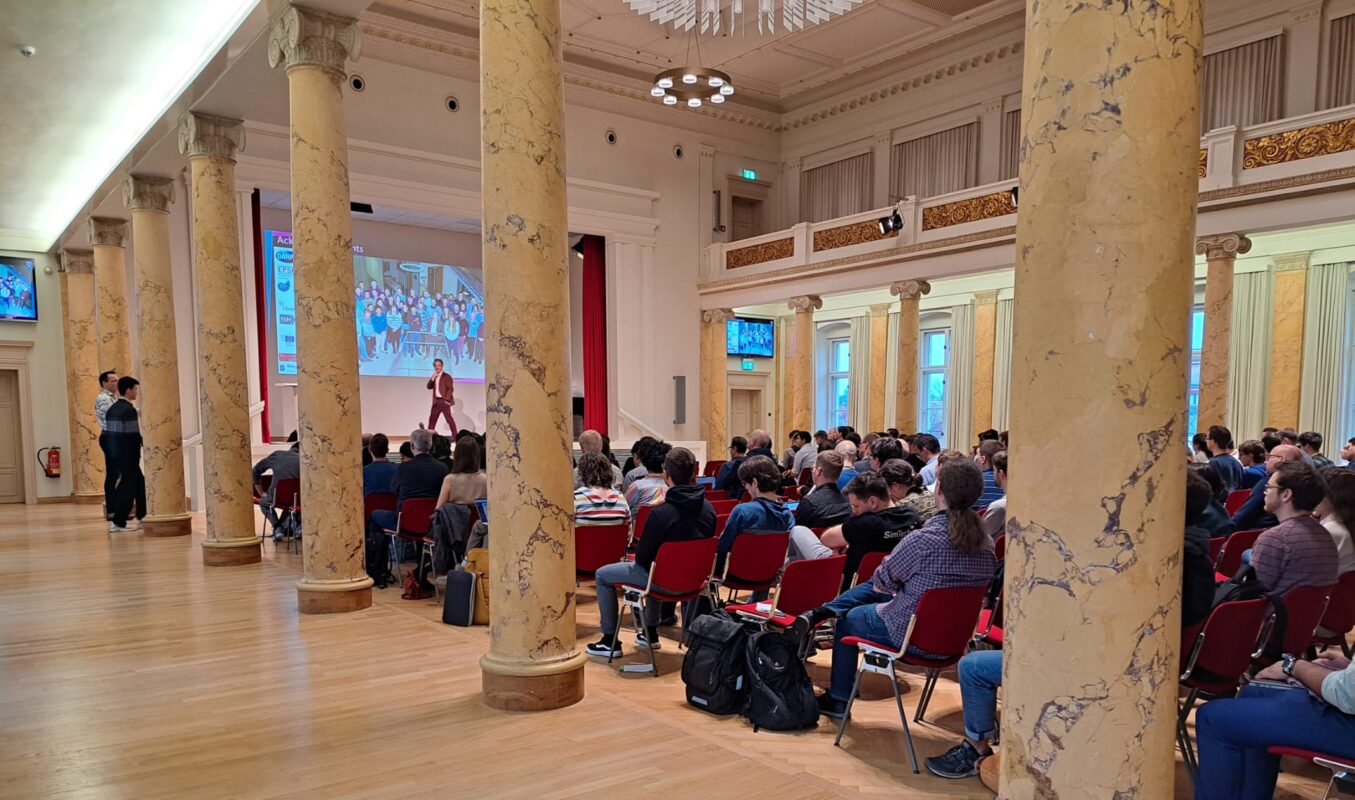Two weeks ago, very spontaneously, we traveled to Halle (Saale) in Germany to attend the Leopoldina Symposium on Molecular Machine Learning, held the from 4th to the 6th of March and hosted by the SPP 2363 of the German Science Society (DFG). The conference took place in the beautiful and historic building of the German National Academy of Sciences Leopoldina and featured amazing speakers from the field of molecular machine learning from all over the world. Topics covered during the conference ranged from quantum chemical methods to various applications of machine learning in chemistry, and discussions on self-driving labs.
Ida: “Attending the Leopoldina Symposium on Molecular Machine Learning felt like a fresh spring breeze after a long and dark winter. For me, this conference marked a return to the world of academic gatherings after a long break, and I felt how much I had missed the exchange of ideas with other researchers. The decision to attend came about randomly as I was browsing to see where Ola Engkvist, one of the authors whose papers I read most frequently, would be presenting next. Upon discovering that he would be speaking at this symposium, the choice was clear—I had to go.
 Engkvist’s insightful talk on applying machine learning and AI to drug design not only sparked new ideas but also validated the direction of my own work, instilling a sense of confidence in my efforts. However, the richness of the conference experience extended beyond his presentation. Each speaker delivered high-level talks that challenged conventional thinking while exposing shared limitations and questions within the field. Discussions on topics like defining chemical space and selecting appropriate molecular descriptors illuminated the complexities we all grapple with in our research.
Engkvist’s insightful talk on applying machine learning and AI to drug design not only sparked new ideas but also validated the direction of my own work, instilling a sense of confidence in my efforts. However, the richness of the conference experience extended beyond his presentation. Each speaker delivered high-level talks that challenged conventional thinking while exposing shared limitations and questions within the field. Discussions on topics like defining chemical space and selecting appropriate molecular descriptors illuminated the complexities we all grapple with in our research.
The poster session was a highlight for me, offering both the opportunity to present my work and engage in stimulating discussions with fellow researchers. The constant flow of dialogue and interest in my research fueled my motivation for the future. Moreover, the connections made during the conference reinforced my sense of belonging to the scientific community, leaving me eagerly anticipating future encounters with newfound colleagues.
And if this wasn’t already amazing enough, I’m already itching to return to Germany because I’ve never had such an abundance of delicious pretzels and cakes as I did at this conference.”
Henrik: “It was amazing to catch a few hours of spring sun in Halle and attend this conference. The quality of the talks was in total very great and relevant to my own work. Among the highlights for me were the talks by Ola Engkvist from AstraZeneca and by Francesca Grisoni from TU Eindhoven. Ola Engkvist showed how generative modeling is applied in the drug design process and to me very surprising already 75% of all drug design projects apply the machine learning methods within AstraZeneca. While listening to Francesca Grisonis talk, I recognized a figure we have recently discussed in our seminar about active learning, and also her results on machine learning on small datasets were very inspiring and gave me new ideas for my current project. Very impressive was also the talk by Felix Strieth-Kalthoff, who presented his results on the development of organic lasers and how machine learning and self-driving labs can be applied to develop materials with improved properties. It was particularly valuable to discuss with researchers which work on projects similar to mine during the poster sessions about the challenges of applying generative modelling to chemical properties with small datasets.”
Overall, the conference was a great experience, and we came back to Stockholm with inspiration and a lot of new ideas. Thank you to Frank Glorius and his group from Wuerzburg for organizing a very smooth and interesting conference and thank you to the Leopoldina Nationale Akademie der Wissenschaften for hosting the conference. Henrik would like to thank the Stockholm University Center for Sustainable and Circular Systems (SUCCeSS) for funding his travelling.


